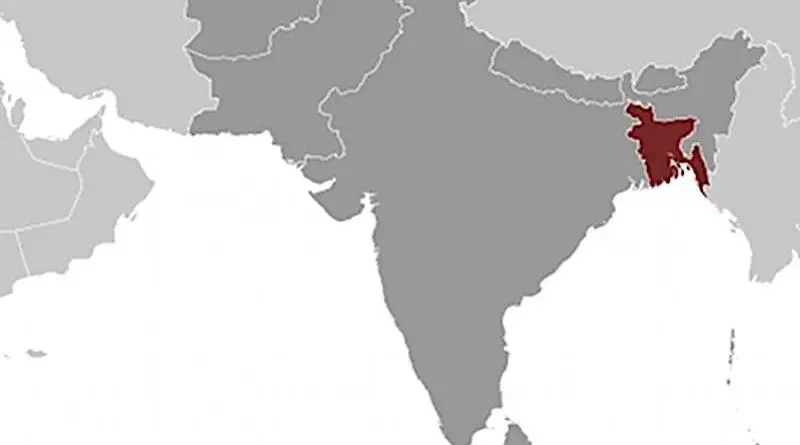Bangladesh: A Book Fair Keeps Its Tryst In Defiance Of Fundamentalists – Analysis
By Swadesh Roy*
One month long book fair named `Ekushey Boi Mela’ ended on February 29, 2016. It was not just another book fair, but the only place in the country for writers and the readers to meet once in entire year. Thousands of people flocked there every day, underlining that love for books is increasingly becoming a passion for many in Bangladesh, particularly amongst the middle class of the country.
A yearly ritual that it has now become, it would not be an exaggeration to claim that the sanctity assumed by this event is in a measure similar to what is accorded to the annual Durga Puja festivities. Not only is the grandeur of this book fair something to marvel at, but there is something deeply uniting about this event. Much like Durga Puja which sees even those who do not subscribe to the religion that observes this yearly event gather for the event, this book fair manages to get even the professed ‘non-book lovers’ to join the ‘avowed book lovers’ from across the country and even beyond. In fact, what makes the Ekushey Boi Mela more poignant is that it honors and strengthens the evolving Bangladeshi identity. Organized in the month of February every year, the book fair celebrates the International Mother Language Day (February 21), which is as is known had culminated out of the struggles of the people of Bangladesh who had striven to reclaim space for their identity that was being crushed under the tight-fisted rule of West Pakistan.
This book fair associates itself with the heritage of the youngest nation in South Asia and is, in fact a reflection of all that which had gone into making what the country is today. The people of Bangladesh, who were initially repressed by the political sovereigns sitting in West Pakistan and then by some of its own people, the book fair and all the celebrations that are a part of it are expressions of the resolve that the people of Bangladesh are demonstrating towards gaining and retaining their basic freedoms. Since the time it began, this book-fair had become a beacon of free thinking, free and unhindered expression.
While the scenario in Bangladesh slowly taking progressive turns, things are far from being normal. The remnants of a suppressed, radical and extremist past continue to haunt many in the country. Now the government is democratic; is fighting against religious fundamentalism, but free thinking is still attacked by religious fundamentalists; a saddening development that came about with the rise of Bangladesh National Party (BNP) in 1991.
Highly conservative, and maybe even dogmatic, when compared to the party that is currently in charge of the government in Bangladesh, the BNP, under the leadership of Khaleda Zia, placed direct and indirect curbs on that very freedom of expression for which millions had laid their lives during the Liberation Struggle. Instances are available in plenty that point to the kind of controls that were slapped on freedom of expression in Bangladesh and so much so that some of the progressive writers were chased out of the country. One such writer was Taslima Nasrin. She was compelled to leave her country as her writings evoked displeasure amongst the conservative who were backing Zia’s government.
While many years have gone by, a sense of insecurity still prevails, something that is attested by the many ‘hackings to death’ which have taken place in recent months. Though in the last seven years, the country has been ruled by a progressive government, they have been rather slow in dealing with the radical elements that are still at large and are threatening the democratic culture that Bangladesh is striving to maintain.
The present government had increased the security of the book fair; even they are trying to ensure the security of the writers. Fundamentalists are still being sheltered in huge numbers in Bangladesh, and which poses a big challenge for the government and society. Getting physical, emotive and mental shelter, the fundamentalists have been at their work with all their might, and which is to stifle the growth of progressive forces in the country. Last year four young writers were hacked to death; one of them also a writer and scientist Avijit Roy; his father Ajoy Roy is not also only a scientist but also a prominent teacher who lead the students and teacher for the independent struggle of Bangladesh. Avijit was killed on February 26, 2015; his killers admitted that they killed him for his writing.
After the killing of Avijit two more young writers were killed in Bangladesh, but the most significant incident happened on October 3, 2015, when the fundamentalists killed a publisher in his office. It was the noon of the October 3 that the fundamentalists beheaded Faysal Arifin Dipon, the owner of the Jagriti publishing house. His body was on the floor and his head was on the keyboard of his personal computer. At the same time another group of fundamentalists chopped the owner of Shudhaswar( Voice of Truth), Ahamedur Rashid Chudhury Tutul , Tarek Rahim and writer Ranadipam Basu.
BBC Bengali Service broadcasted a report on it, sounding apprehensive about the prospects of the Ekushey Boi Mela that was to be hosted in the year to come. It was rightly expected that these killings would leave a major impact on the upcoming book fair, but these could not manage to shake the faith of all those who are still working to make Bangladesh a liberal democracy. Few writers like Muntasir Mamoon, Shariar Kabir, Dr. Anwar Hoshien and Dr. Zafar Iqbal raised their voice in favor of free thinking. Except the Daily Janakantha, most of the daily newspapers of Bangladesh refused to publish their articles.
*Swadesh Roy is a writer and columnist, working as the executive editor for The Daily Janakantha, Dhaka, Bangladesh. He can be reached [email protected]

